India and the World chapter 12 : Pakistan – Enemy at the gate
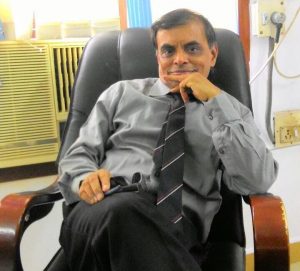
Baskaran Krishnamurthy
Read Chapter 1 , Chapter 2 , Chapter 3 , Chapter 4, Chapter 5, Chapter 6, Chapter 7, Chapter 8, Chapter 9, Chapter 10, Chapter 11 if you are yet read them.
International Court of Justice and the maneuvers of Pakistan.
India’s efforts of trying the 195 war prisoners for their crimes met with stiff resistance by Pakistan. Predictably, the case was taken by Pakistan to the International Court of Justice. The correspondence between the Court and Pakistan as between the Court and India, quite naturally, revolved around the Geneva Convention, the Simla Agreement and of course the Delhi Agreement on repatriation of persons.
Setting aside the malicious intention and unjust demand of the Pakistani government, the arguments put forth by it were truly within the ambit and framework of these three guiding instruments but surely outside the scope of ‘the spirit of the Conventions’.
In 1973, Pakistan moved the International Court of Justice and ‘initiated the proceedings against India concerning 195 Prisoners of War whom according to Pakistan, India proposed to hand over to Bangladesh, which was said to intend trying them for acts of genocide and crimes against humanity’. For those readers who would love to know more about it – this was ‘entered on the Court’s General List on 11 May 1973 under number 60’ and records of the proceedings are available in the official site of the ICJ.
‘India stated that there was no legal basis for the Court’s jurisdiction in the matter and that Pakistan’s Application was without legal effect. The Court held public sittings to hear observations on this subject; India was not represented in the hearings.
In July 1973, Pakistan asked the Court to postpone further consideration of its request in order to facilitate the negotiations which were due to begin. Before any written pleadings had been filed, Pakistan informed the Court that negotiations had taken place, and requested the Court to record discontinuance of the proceedings. Accordingly, the case was removed from the List by an order of 15 December 1973.’
Established in June 1945 by the Charter of the United Nations, the role of the International Court of Justice is ‘to settle, in accordance with International Law, legal disputes submitted to it by States and to give advisory opinions on legal questions referred to it by authorized United Nations organs and specialized agencies’.
So, the Government of Pakistan converted the issue of repatriation into a ’legal dispute’ questioning ‘whether or not Pakistan has an exclusive claim to exercise jurisdiction in respect of such persons under Article VI of the Convention on the Prevention and Punishment of the Crime of genocide adopted by the general Assembly on 9 December 1947, to which both India and Pakistan are parties.’
Pakistan did not deem it wrong to misrepresent the facts before the ICJ when it submitted thus: ‘on 21st November 1971, taking advantage of internal situation in East Pakistan and acting in breach of her obligations under the U.N. charter, Government of India launched direct armed attacks against
Pakistan’s Eastern Province that continued to mount until Pakistan was forced to take measures in self -defence. The fighting spread to West Pakistan and resulted in a state of war on 3 December 1971’.
So the Pakistan Government invented a theory that India took advantage of the internal situation prevailing in Pakistan and that it was an unwanted, unwarranted attack on it. This was a blatant lie and Pakistan did not care too much about losing its credibility with the international community.
The application goes on to narrate that on 11 December 1971, the Chief of Staff of the Indian Armed Forces, General S.H.F. Manekshaw called upon the Pakistan Forces in East Pakistan to surrender to the Indian army. In a radio broadcast he gave his ‘solemn assurance’ that the personnel who surrendered would be treated with the dignity and respect.
‘Wishing to avoid further bloodshed and destruction, the vastly outnumbered Pakistan forces under the Eastern Command surrendered to the Indian army on 16 December 1971 and the surrendered troops were assured of safe evacuation. Consequent upon this call, the Eastern Command of the Pakistan army surrendered and the prisoners passed into the hands of the sole belligerent power India in the international conflict with Pakistan’.
Was it really a ‘wish’ to surrender? Were the Pakistani troops so sensible that it wanted to avoid bloodshed and destruction? Was it an international ‘conflict’? Could the army have surrendered just because the Chief of Staff of the Indian Army called upon to do so? What had happened in reality was that the Pakistan army was badly defeated and they were caught unaware of what to do next.
India had taken them as prisoners and paved way for their safe passage back to Pakistan provided they had nothing to do with the atrocities in Dhaka and elsewhere. Only those who were involved in the acts of genocide were held back. These facts were completely hidden or totally distorted to mislead the ICJ; Pakistan was ready to stoop to any level to somehow stop the trial against the criminals.
It also argued that ‘the responsibility for the treatment of prisoners of war, thus, rested exclusively with the ‘Enemy Power’ India and not with the individuals or military units that captured them’. This was another attempt to save the criminals from being handed over to Bangladesh.
Pakistan also referred to India’s assurance in the U.N. Security Council on 12 December 1971 that “India stands committed to dealing with enemy forces according to Geneva Conventions’.
The prisoners of war, including civilians paid out of the resources of the armed forces number 81,888. In addition there were 10,000 civilians, among them 6500 women and children. This was the submission before the ICJ. But when the Pakistani forces ‘targeted’ the women in Dhaka University, no convention was followed; no rules were obeyed. After being captured, Pakistan Government wanted them to be treated in accordance with the Conventions!
‘On 16 December 1971, India made a ceasefire call which was accepted by Pakistan and hostilities ceased at 14:30 hours GMT on 17 December 1971. Indian Foreign Minister stated before the Security Council on 21 December 1971 that ‘with the independence of Bangladesh and the surrender of Pakistan troops there, their earliest possible repatriation from the Eastern theatre has to be arranged. They are
under our protection and we have undertaken to treat them in accordance with the Geneva Conventions’. Anyway, it was admitted that in January 1972, India transferred 92,000 prisoners to Pakistan.
‘Pakistan civilians voluntarily placed themselves on the basis of the earliest possible repatriation to West Pakistan; but are wrongfully interned and continue to be illegally and improperly detained. Meanwhile, during the occupation, with Indian encouragement and help, the leaders of East Pakistan set up that territory as the ‘Independent State of Bangladesh’ and declared their intention of holding trials for genocide and crimes against humanity’.
Pakistan referred to the speech of the Bangladesh Prime Minister Mujibur Rahman on 26 April 1972 that he could not understand how people who had committed genocide could escape the consequences and that they must be punished.
‘Government of Pakistan cannot agree to the trial of its prisoners of war by ‘Bangladesh’ since Pakistan has jurisdiction over its nationals in respect of any acts of genocide allegedly committed in Pakistani territory. Moreover, the concept of crimes against humanity is not even remotely applicable’.
This was the most cruel joke of the Pakistan Government – submitted in writing before the ICJ. The crimes were committed on its soil its people; so the trial can not be conducted outside Pakistan! This is to say that the crimes against humanity should be tried in the land of the criminals and NOT by the Government of the victims. Such shameless claims are found in plenty in the application of Pakistan.
Pakistan contented that under Article 118 of the Third Geneva Convention and Article 134 of the Fourth Geneva Convention, India was under obligation to repatriate prisoners of war immediately on cessation of hostilities.
What was India’s contention? What was the verdict of the ICJ? Does Geneva Conventions
Author – Baskaran Krishnamurthy, Writer, Columnist & Income Tax officer







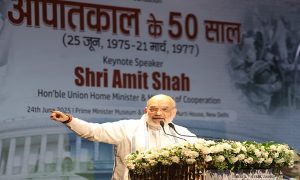

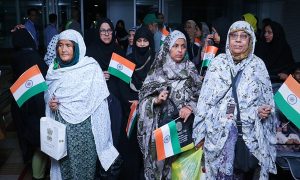

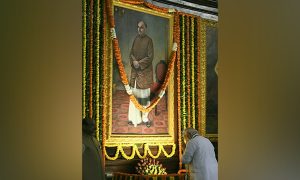



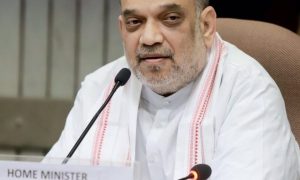



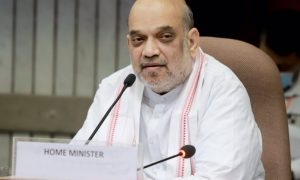

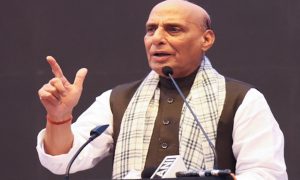

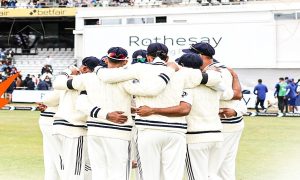



 WhatsApp us
WhatsApp us